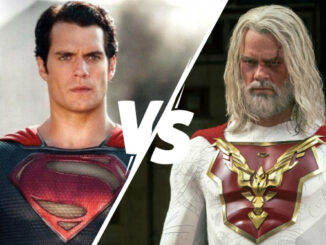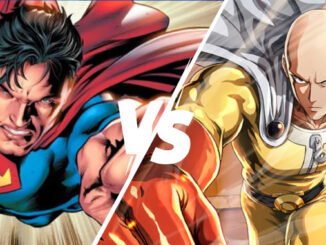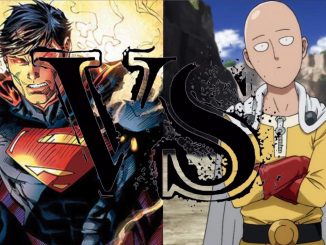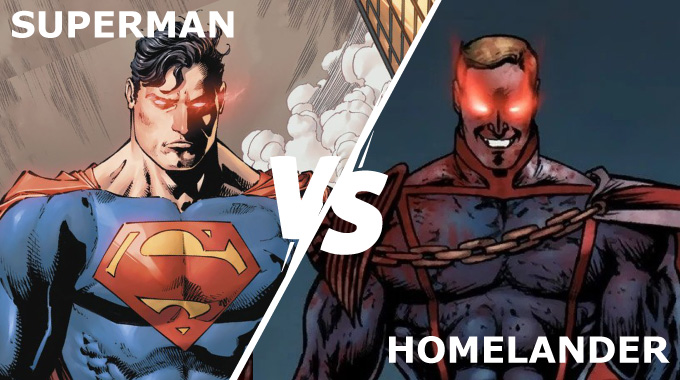
Superheroes, with their extraordinary abilities and moral dilemmas, have become central figures in popular culture. Among these, Superman and Homelander stand out as iconic characters, each representing distinct facets of heroism within the comic book landscape. In this article, we’ll explore the differences and intriguing similarities between these two powerful figures.
Origin Stories:
Superman, created by Jerry Siegel and Joe Shuster, made his debut in 1938 in Action Comics #1. Kal-El, an alien from the doomed planet Krypton, is sent to Earth as an infant. Raised by the Kent family, he becomes Clark Kent, a mild-mannered journalist, and Superman, the Man of Steel.
Homelander, on the other hand, is a character created by writer Garth Ennis and artist Darick Robertson, featured in “The Boys” comic series. He is the leader of The Seven, a superhero team in a world where superheroes are celebrities. Homelander is a genetically engineered superhuman created in a lab, representing a darker take on superhero origins.
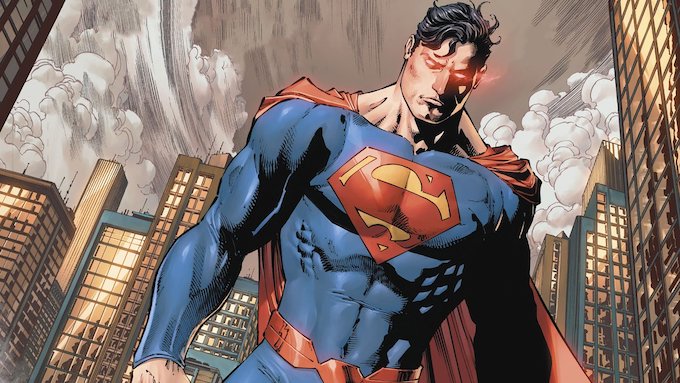
Motives and Moral Codes:
Superman’s moral code is built upon principles of truth, justice, and the American way. He is the epitome of the virtuous hero, consistently striving to do what is right and protect humanity. Superman’s altruism and commitment to the greater good make him a symbol of hope and inspiration.
Homelander, in contrast, is a more morally ambiguous character. While he presents himself as a symbol of patriotism and heroism, his actions often reflect a self-serving agenda. Homelander is motivated by a desire for power and control, which leads him to make morally questionable decisions that set him apart from Superman’s virtuous path.
Similarities:
- Superhuman Abilities: Both Superman and Homelander possess an array of superhuman abilities, including super strength, flight, heat vision, and invulnerability. Their powers make them formidable figures in their respective universes.
- Public Image: Both characters have a public persona as revered superheroes. They are adored by the public and often considered saviors. However, the public perception contrasts with the private struggles and complexities of their characters.
- Leadership Roles: Superman and Homelander assume leadership roles within their superhero teams. Superman is often seen as a guiding force in the Justice League, while Homelander leads The Seven, showcasing their influence within their superhero communities.
Differences:
- Moral Code: Superman’s moral compass is unwavering, rooted in selflessness and the protection of humanity. Homelander’s moral code is more self-serving, driven by a desire for power and control, leading to morally gray decisions.
- Origins: Superman’s origin is rooted in the destruction of Krypton and his subsequent adoption by the Kent family. Homelander’s origin involves genetic engineering and manipulation in a lab, highlighting the darker side of superhero creation in “The Boys.”
- Tone: The tones of their respective stories differ significantly. Superman’s tales typically embrace hope and optimism, while “The Boys” explores a more cynical and satirical take on the superhero genre.

Head to Head:
Determining the outcome of a hypothetical battle between Superman and Homelander would depend on the specific conditions set by the writers and the narrative context of the battle.
In a straightforward physical confrontation, Superman’s traditionally vast array of powers may give him an advantage. However, the outcome could be influenced by factors such as the creative direction of the story, the characters’ motivations, and any unforeseen twists introduced by the writers.
Ultimately, the outcome of such a battle would be subject to the interpretation of the characters by the storytellers, and it would likely serve the narrative and creative purposes of the story, whether emphasizing the ideals of heroism or exploring the complexities of power and morality. Fans of each character may have their own opinions on who would come out on top.
Conclusion:
Superman and Homelander, while sharing commonalities in their superhuman abilities and public personas, are fundamentally different characters due to their origins, moral codes, and narrative tones. Superman embodies the classic hero archetype, representing hope and altruism, while Homelander provides a darker, more cynical commentary on the superhero genre. The differences and similarities between these two characters illustrate the versatility and depth of storytelling within the superhero genre, offering audiences a range of interpretations and reflections on heroism.


